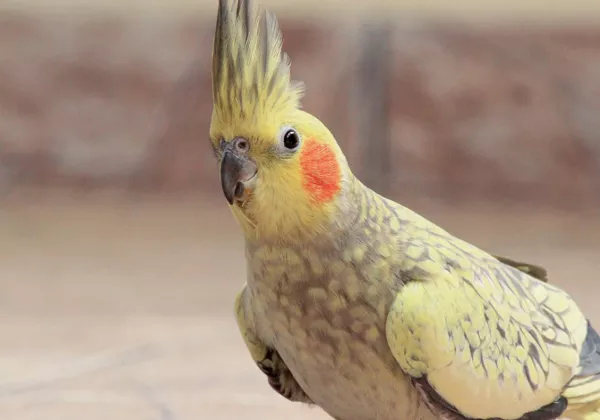Cockatiels, with their vibrant personalities and striking crests, have become popular companions in the world of aviculture. As a responsible cockatiel owner, it is important to understand the expected lifespan of these charismatic birds to provide them with the best care possible. While genetics, diet, environment, and healthcare play significant roles in determining a cockatiel’s lifespan, it is generally agreed that with proper care and attention, these birds can live long and fulfilling lives in captivity. In this comprehensive article, we will explore the factors that influence the lifespan of cockatiels, common health concerns to watch out for, and practical tips to ensure your feathered friend thrives throughout its years in captivity.
Factors Affecting Lifespan
Genetics: Genetic factors play a crucial role in determining the potential lifespan of a cockatiel. Some individuals may have inherited longevity traits, while others may be predisposed to certain health conditions. While genetics set the foundation, proper care can still significantly impact a cockatiel’s overall lifespan.
Diet and Nutrition: Providing a balanced and nutritious diet is essential for the health and longevity of cockatiels. A diet rich in fresh fruits, vegetables, high-quality pellets, and limited seed treats can contribute to their overall well-being. A well-rounded diet ensures that cockatiels receive the necessary vitamins, minerals, and nutrients required for optimal health and a longer lifespan.
Exercise and Mental Stimulation: Regular physical exercise and mental stimulation are vital for the overall health and longevity of cockatiels. Providing a spacious cage, regular out-of-cage time for flying and exploration, and a variety of toys and enrichment activities keep cockatiels active, engaged, and mentally stimulated.
Veterinary Care: Routine veterinary check-ups are essential to monitor a cockatiel’s health and detect any potential issues early on. Regular examinations, vaccinations, and parasite control can help prevent or manage health conditions, ultimately contributing to a longer lifespan.
Environmental Factors: A clean, safe, and stress-free environment is crucial for a cockatiel’s well-being and longevity. Avoid exposing them to harsh chemicals, tobacco smoke, extreme temperatures, drafts, and excessive noise. Minimizing stressors and providing a consistent and comfortable environment can positively impact their overall health.
Average Lifespan of Cockatiels
Cockatiels are known for their relatively long lifespans compared to some other pet bird species. On average, a well-cared-for cockatiel can live between 15 and 25 years in captivity. However, it is not uncommon for cockatiels to exceed these averages and live into their thirties or even forties with exceptional care and genetics.
Various factors can influence the lifespan of a cockatiel. Genetics, as mentioned earlier, can play a significant role. Some cockatiels may inherit longevity traits that allow them to live longer than average. However, it is important to note that individual variations exist, and not all cockatiels will reach these extended ages.
Diet and nutrition also greatly impact a cockatiel’s lifespan. A balanced diet consisting of fresh fruits, vegetables, high-quality pellets, and limited seed treats provides the necessary nutrients for a healthy immune system and overall well-being. Avoiding a diet primarily composed of seeds, which lacks essential nutrients, can contribute to a longer lifespan.
Providing a stimulating environment with opportunities for exercise and mental engagement is equally important. Regular flight, interaction with toys, and socialization with their human caregivers promote physical and mental well-being, potentially extending their lifespan.
Common Health Concerns and Care
While cockatiels are generally hardy birds, there are certain health concerns that can affect their lifespan. Being aware of these issues and providing appropriate care is crucial for the overall well-being and longevity of your cockatiel. Some common health concerns in cockatiels include:
Respiratory Infections: Cockatiels are susceptible to respiratory infections, often caused by bacteria or viruses. Proper hygiene, a clean living environment, and regular veterinary check-ups can help prevent and manage these infections.
Malnutrition: An imbalanced or inadequate diet can lead to malnutrition, affecting a cockatiel’s overall health and lifespan. Offering a varied and nutritious diet is essential to prevent malnutrition-related complications.
Obesity: Overfeeding and a lack of exercise can lead to obesity in cockatiels, which increases the risk of health issues such as heart disease and joint problems. Providing a balanced diet and regular opportunities for physical exercise help maintain a healthy weight.
Feather Plucking: Cockatiels may engage in feather plucking due to stress, boredom, or underlying health issues. Identifying and addressing the cause of feather plucking is important to prevent complications and promote a healthy, long life.
Egg Binding: Female cockatiels may experience complications during egg-laying, such as egg binding, which can be life-threatening. Providing a proper diet, appropriate nesting materials, and monitoring their reproductive health can minimize the risk of such issues.
To ensure your cockatiel’s well-being, it is essential to establish a relationship with an avian veterinarian who can provide regular check-ups, vaccinations, and advice on appropriate care and nutrition.
Conclusion
Cockatiels, when given proper care, nutrition, and a stimulating environment, can live long and fulfilling lives in captivity. While genetics, diet, exercise, veterinary care, and the overall living environment influence a cockatiel’s lifespan, the average lifespan of a well-cared-for cockatiel ranges from 15 to 25 years. By understanding the factors that impact their longevity and being attentive to their health and well-being, you can provide your beloved cockatiel with the best possible chance for a happy and extended life. Remember to consult with an avian veterinarian for guidance specific to your cockatiel’s needs, and provide a nurturing environment filled with love, proper nutrition, mental stimulation, and regular veterinary care. With proper care and attention, you can enjoy the companionship of your feathered friend for many years to come.
Related Topics:
























